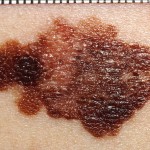Skin cancer drugs linked to increased survival rates
Skin cancer drugs vemurafenib and ipilimumab were shown in separate trials to have extended the survival rates of patients with advanced melanoma.
The findings represent a breakthrough in the sense that although not a cure, the two skin cancer drugs have succeeded in new ways in combating the disease.
First is by targeting a mutation that promotes tumor growth and the second is by boosting the body's own defenses to combat melanoma.
The results of the studies were presented on Sunday in Chicago during the annual conference of the American Society of Clinical Oncology and published by The New England Journal of Medicine.
"This is an unprecedented time of celebration for our patients," said Dr. Lynn M. Schuchter, who is a specialist on melanoma at the University of Pennsylvania.
Advanced melanoma patients are expected to live between six and ten months. But the two skin cancer drugs can add an extra two or even more months of life.
In the first study, 84 percent of patients who took vemurafenib were still alive six months after starting therapy versus 64 percent for those show took the conventional drug dacarbazine.
The second study showed that patients who received ipilimumab with dacarbazine had a media survival of 11.2 months compared to 9.1 months among those who took dacarbazine alone.
While the numbers may not be be earth-shaking, the urgency to develop better skin cancer drugs is there because of the sharp rise in melanoma cases in recent years.
The growth in the incidence of skin cancer is attributed to more sun exposure, increased use of tanning beds, and better surveillance and detection of cases.
